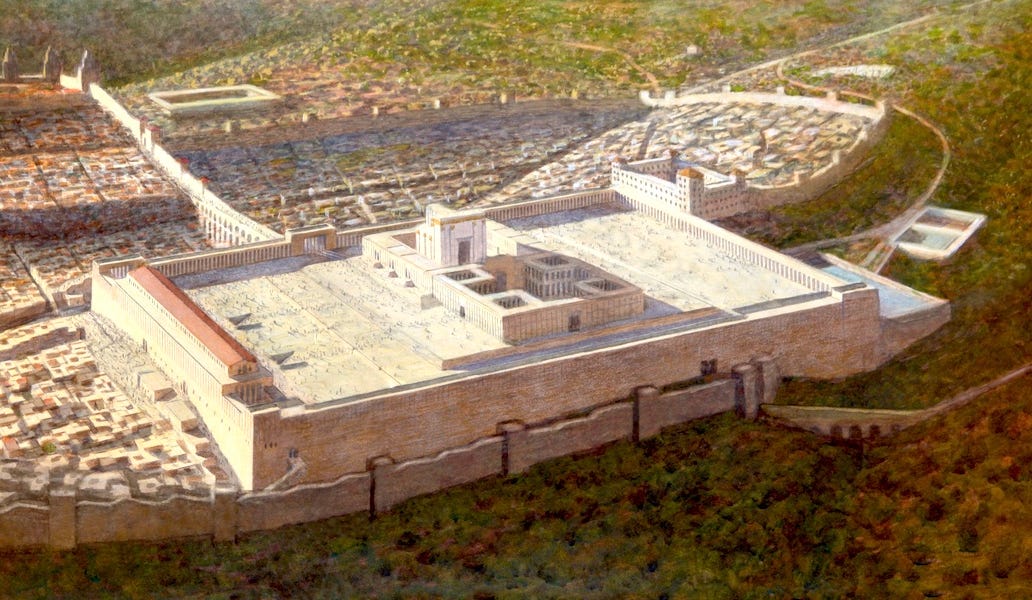Steven Avery
Administrator
The first person in modern times that we know who connected Theophilus with the high priest was Theodor Hase c. 1720. This was picked up by William Paley and Johann Michaelis did a fine section about it, agreeing with Hase from about his 3rd edition.
Questions from Theodore Hase include:
Did he definitely land on the high priest side?
What historical and exegetical evidences does he give, and scriptures?
Does he give hints of earlier writers knowing this connection?
So the question is finding and understanding the Latin section from Hase:
Bibliotheca historicophilologicatheologica
https://archive.org/details/bub_gb_YTX3aSi0uNcC/page/n505/mode/2up
or
Bibliotheca Bremensis historico-philologico-theologica, Volume 4 (1720)
https://books.google.com/books?id=mv9SclcIL3AC&pg=PA506
And Theodore Hase discusses unimportant theories, like Christophe August Heumann, published the same year, also his brother Jacob Hase. They are mentioned in Michaelis.
Latin help with this would be greatly appreciated.
Michaelis - p. 236-239
http://books.google.com/books?id=sLAXAAAAYAAJ&pg=PA236
Questions from Theodore Hase include:
Did he definitely land on the high priest side?
What historical and exegetical evidences does he give, and scriptures?
Does he give hints of earlier writers knowing this connection?
So the question is finding and understanding the Latin section from Hase:
Bibliotheca historicophilologicatheologica
https://archive.org/details/bub_gb_YTX3aSi0uNcC/page/n505/mode/2up
or
Bibliotheca Bremensis historico-philologico-theologica, Volume 4 (1720)
https://books.google.com/books?id=mv9SclcIL3AC&pg=PA506
p. 506-507 - Introduction
p. 507-508 - #1 - Fabricius and Heumann - Roman - many others
p. 508-509 - #2 - Athens 58 Olympic - Plutarch - Bar
p. 509-510 - #3 - Christian - Council of Nicea, martyr Diocletian - Theodosian Laws - Baronius
p. 510-511 - #4 - Michael Balbi - Photius - Basil Epistle ad Theodotum
p. 511-513 - #5 - Epiphanius - (Hippolytus-Fabricius) - Hodius - Wilhelm Schelguigius
p. 513-515 - #6 - 2 Samuel 12:25 - Josephus - Antiquities L.XVII Herod -- L.XX ch. 8 sect 17 - Matthaias father of Theophilus - Ananis with five sons, Caiaphas - Josephus L.VIII - c7 - 39 AD - Claudio Agrippa - Simone Boethi Josephus L.XIX ch. 6
Hebrew footnote - Simcha ben Gerson - Wolfius - Rabbi Jedidiae - name Theophilorum among Jews
p. 515-516 - #7 - key high priest starting point, where Luke mentions his being most excellent - Jerusalem (Hierosolymae)
p. 516 - #8 - Luke - Judaea - Jerusalem - Acts 24:7 Acts 21:15-18 Acts 27:1 Acts 28:1-16 - Jerusalame and Bethlehem
p. 516-518 - #9 - Francois Burman (1628-1679) - Acts 21:17-18 - Acts 6:7 - Josephus L.XX.c.8 - maybe different epoch ?
p. 518-519 - #10 -
p. 519-521 - #11 - Hesychius - Stephanus - Acts 21:21 - Acts 21:24 - Isidorus p. 520, Cyprian p. 521 - Heumann p. 521
p. 521-523 - #12 - high priest, Temple - discusses Caiaphas his father, Joanna is mentioned, (ossuary discovered later) Luke 3:3
p. 523 - #13 - Acts, Jerusalem, Theophilus,
p. 523-524 - #14 - Heumann - Jacob Hase
p. 524-525 - #15 - Claudius Candidus (d. 198) - Acts 23:26 - 24:3 - 26:27 - Luke 1:4 Acts 23:26
p. 525-526 - #16 - Roman
p. 526-528 - #17 - Heumann - Sergius Paulus - Acts 13:7-12 (earlier Michaelis) - Tertullian and persons
p. 528-529 - #18 - Pomponian - Tacitus - Nero - Tacitus and Suetonius
p. 529-530 - #19 - superstition Acts 17:19-20 - Eusebius life of Constantine
p. 530-531 - #20 - 2 Corinthians 7:10
p. 531 - #21 - Luke commentary - Tacitus - Theophilus Christian
END
And Theodore Hase discusses unimportant theories, like Christophe August Heumann, published the same year, also his brother Jacob Hase. They are mentioned in Michaelis.
Latin help with this would be greatly appreciated.
Michaelis - p. 236-239
http://books.google.com/books?id=sLAXAAAAYAAJ&pg=PA236
Last edited:



